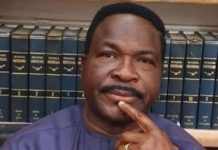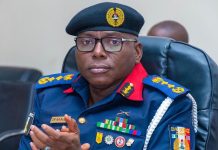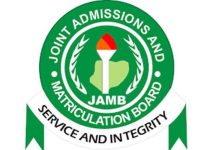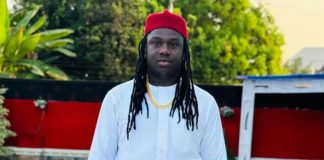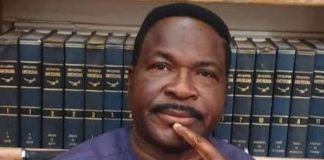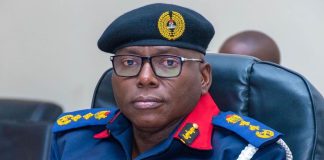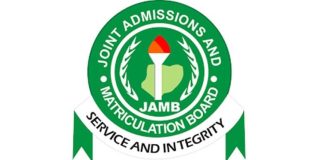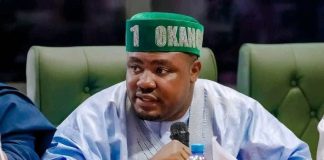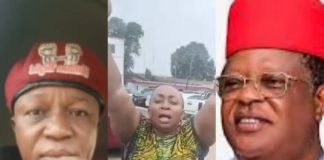🌿 Ruzu Non-Alcoholic Herbal Bitters
Ruzu Non-Alcoholic Herbal Bitters is a natural health supplement specially formulated to:
- ✅ Promote general wellness
- ✅ Detoxify the body
- ✅ Support the treatment of various ailments
Made from a powerful blend of 100% organic and medicinal herbs, Ruzu is completely alcohol-free, making it ideal for:
- 👪 All age groups
- 🌱 Health-conscious individuals
- 🌿 Anyone seeking non-alcoholic herbal remedies
Whether you're looking to boost your vitality, cleanse your system, or support healing the natural way, Ruzu Bitters offers a trusted herbal solution.
People in Rivers State had great expectations because the six-month state of emergency that was imposed on March 18, 2025, would have ended on Thursday, September 18, 2025. Nyesom Wike, a former governor of Rivers State, minister of the Federal Capital Territory (FCT), and a key architect of the state’s crisis, raised hopes that this would be the case when he announced a few weeks ago that the state of emergency would end and that suspended Governor Simi Fubara would be reinstated.
It was unclear if Wike was speaking for the national assembly or the presidency of Nigeria, the two main institutions with a say in the issue under Section 305 of the 1999 Constitution, or if he was just acting on his own behalf, as is his custom. As Vice Admiral Ibok-Ete Ibas, the sole administrator appointed last week, announced his impending departure from what he calls “our government,” the people’s expectations were aroused.
In accordance with Section 305(6)(c) of the Constitution, the state of emergency will terminate on Thursday, but only if there are no unexpected events during the next two days. The possibility of the National Assembly considering an extension under the proviso in that clause is unimaginable. The National Assembly is in recess until September 23rd, nevertheless.
As he gets ready to leave and let the rightful, elected governor of Rivers State return, Vice Admiral Ibas has indulged in boasting that he has completed the task President Tinubu gave him on March 18: stabilizing Rivers State, restoring its institutions, and bringing the state back to full democratic governance. The successful conduct of the polls and the swearing-in of elected chairmen and council members throughout the 23 LGAs, he said, were proof. On August 30, the state did, in fact, hold elections for local governments. The majority of political parties and the general public boycotted it. It was poorly managed by the Independent Electoral Commission of Rivers State (RSIEC). Twenty seats were won by the All Progressives Congress (APC) and three by the People’s Democratic Party (PDP) in the 23 LGAs.
If a retired military general is now discussing democratic transition within a democracy to restore a democracy, isn’t that ironic and concerning? He claims to have carried out the directive that President Tinubu gave him. The Nigerian people, not the president, have the mandate in a democratic system. The President’s authority to impose a state of emergency in any region of the Federation has been largely rejected in the case of Rivers State as being completely unreasonable, making it unlawful and unconstitutional. In support of their claims, those who are quick to point to past events reference to Plateau State (2004) and Ekiti State (2006), where President Olusegun Obasanjo named General Chris Alli and General Tunji Olurin as the only administrators, respectively. These precedents were incorrect in that neither the National Assembly nor the President of Nigeria are authorized to unilaterally suspend a state’s democratic institutions under Section 305.
Furthermore, Rivers State was exempt from the severe conditions that lead to a breakdown of law and order, a military conflict, or the threat of war in a portion of the federation. The Jonathan administration did not remove the governor of the state house of assembly, which was the constitutionally correct thing to do in Borno and Plateau states in 2011 and in Borno, Yobe, and Adamawa states in 2013-2014.
The conflict in Rivers State was caused by Nyesom Wike, the previous governor, who refused to let Simi Fubara, his successor, take over as governor. As his godfather, he freely boasted that he appointed Fubara governor and had the right to rule over him and the state. At best, Fubara was a symbolic person. His commissioners were appointed on his behalf, with the possible exception of perhaps one. Wike’s sons were all the local government chairmen and members of the House of Assembly. The PDP platform was used to elect the state governor, but Wike, who had a leg in both parties, vowed to remain faithful to President Tinubu and the APC without leaving the PDP. This amphibious stance further complicated Rivers State politics. Instead, the President reportedly sided with Wike and assisted in degrading the people’s elected representatives. When Fubara attempted to assert himself, he was punished. With the APC controlling 20 of the LGAs and the assembly supporting Wike, President Tinubu and his goons in Rivers State have already accomplished their goal, and the people of Rivers State are clearly the ones who lose the most. A complaint (SC/CV/329/2025) challenging the validity of the state of emergency in Rivers was filed by 11 PDP governors in a rush to the Supreme Court two days after it was announced. There has been no update on the case or related cases involving Rivers State before the courts for six months. Democracy has suffered the worst setback.
He has brought peace back to Rivers State, according to Vice Admiral Ibok-Ete Ibas. He exalts himself too much. The only serenity that exists in Rivers State at the moment is the tranquility of the cemetery, along with fear and worry about what might occur next. An interdenominational Thanksgiving service was conducted by the single administrator on Sunday, September 14. His unpopularity with the residents of Rivers State was demonstrated by that Thanksgiving, if anything else. Well-known state figures boycotted the incident. Service commanders, local government chairmen, government representatives, and a group of hangers-on were present. Although traditional leaders avoided contact, the chairman of the Rivers State Council of Traditional Rulers was able to reveal his face in accordance with his moral obligations. Vice Admiral Ibas thanked God and cited texts from the Bible. He shouldn’t use God as a pawn. It was men’s avarice and soaring ambition that led to the crisis in Rivers State. The interdenominational service’s pastors also demonstrated how pastors contribute to Nigerian politics’ issues. Many leaders in the church no longer feel called to prophecy. The Pentecostal Federation of Nigeria (PFN) and Christian Association of Nigeria (CAN) leadership were among the first groups to visit and honor the lone administrator upon his arrival. No one should be shocked if Governor Fubara returns to Brick House and is greeted by the same group of pastors who are happy to officiate a Thanksgiving service!
Ibas said to the residents of Rivers State: “Let’s be able to forgive, make amends, and get better.” For six months, he controlled resources without any accountability; does he even know who they are? To what extent did he visit LGAs? To what extent did he host town hall meetings outside the government house? Which tasks did he finish? He said he would reconstruct the House of Assembly in Rivers State. Has he done it? It is likely that the members of the House of Assembly will have to start searching for space when they meet again, and they will carry with them memories of strife and division. Apparently, Sole Administrator Ibas has been sitting on his hands for the past six months. His triumph laps should be handled carefully. To avoid being met with jeers and boos from the irate residents of Rivers, he should leave the state in secret, possibly in a nocturnal manner.
The public wants his term to be investigated. “What has happened in Rivers is not gone,” says former Senator Lee Maeba (Rivers South East), expressing the fears. We will take action to demand all of the money that was transferred to the state and to stop the Administrator from just entering a state and spending funds under the guise of a fictitious emergency. The purpose of the declared state of emergency is to restore law and order or security breaches. In this instance, there was no instability, thus the man only came for political reasons. He arrived and began utilizing state resources without any legal or constitutional authorization. The Ijaw Youth Council, Movement for the Survival of Ogoni People (MOSOP), and South-South Youths Initiative all share these views. The public is curious about the use of “their money” because there was no oversight mechanism in place during the six months of the emergency. It’s a valid demand.
The next course of events would be determined by Governor Simi Fubara’s return and his decision. Over the last six months, he has maintained a low profile, avoiding any affiliation that would expose him to another accusation of disobedience by his political bosses. Reports said that he had multiple meetings with both Minister Nyesom Wike and President Tinubu. He and the Minister were spotted sitting side by side at Elder Temple Onuoha’s aunt’s burial in June. Additionally, he visited with his supporters and other interested parties to preach unity and peace. Additionally, he cautioned the women against protesting on his behalf and disbanded his support organizations. The majority of the messages on his Twitter (X) account (@SimFubaraKSC) have been “Happy Eid-ul-Mawld,” “Happy this, Happy that,” and “Welcome to the month of…” He has made a vain attempt to tell the truth. After being stripped of six months of his four-year term and being humiliated, Governor Fubara has learned some very important lessons about the game of power.
The wisest course of action for him upon his return is to stay out of any more conflict with his godfather and his local hitmen, who would be attentively observing him in order to restart their routine of racing to Abuja to report everything he does. His primary concern ought to be ensuring his political survival, with the fulfillment of his remaining term serving as the bare minimum. In addition to seeking peace, he ought to concentrate more on doing his best to serve the people of Rivers State. The commissioners and aides who encouraged him to take a position and fight should be avoided, as should the elderly and young people. Many of those figures came out on the other side or went underground once he was dismissed as governor. The pastors are better than them. In order to feel better upon his return, Fubara should declare his support for and loyalty to President Bola Ahmed Tinubu and the APC, and only stay in the PDP for as long as feasible. This is the grammar, the manual, and the way of Nigerian politics, which is regrettable. The fundamental reason this democracy has failed is because of it.
Let Nyesom Wike, the self-proclaimed godfather, not consider himself a conqueror, though. Nothing has been won by him. He needs to learn how to be less controlling. He should refrain from making any demands that would harm Rivers State in the future. He ought to counsel his storytellers to find more worthwhile activities to occupy their time. If they are at a loss for what to do, he can help them obtain employment as land agents in the federal capital territory! We have to let Fubara work. We have to keep him safe. The act of a minister acting like a co-president and trampling on any state must be discouraged by President Tinubu. The use of illicit means to solve a national issue of malice should never be repeated.


